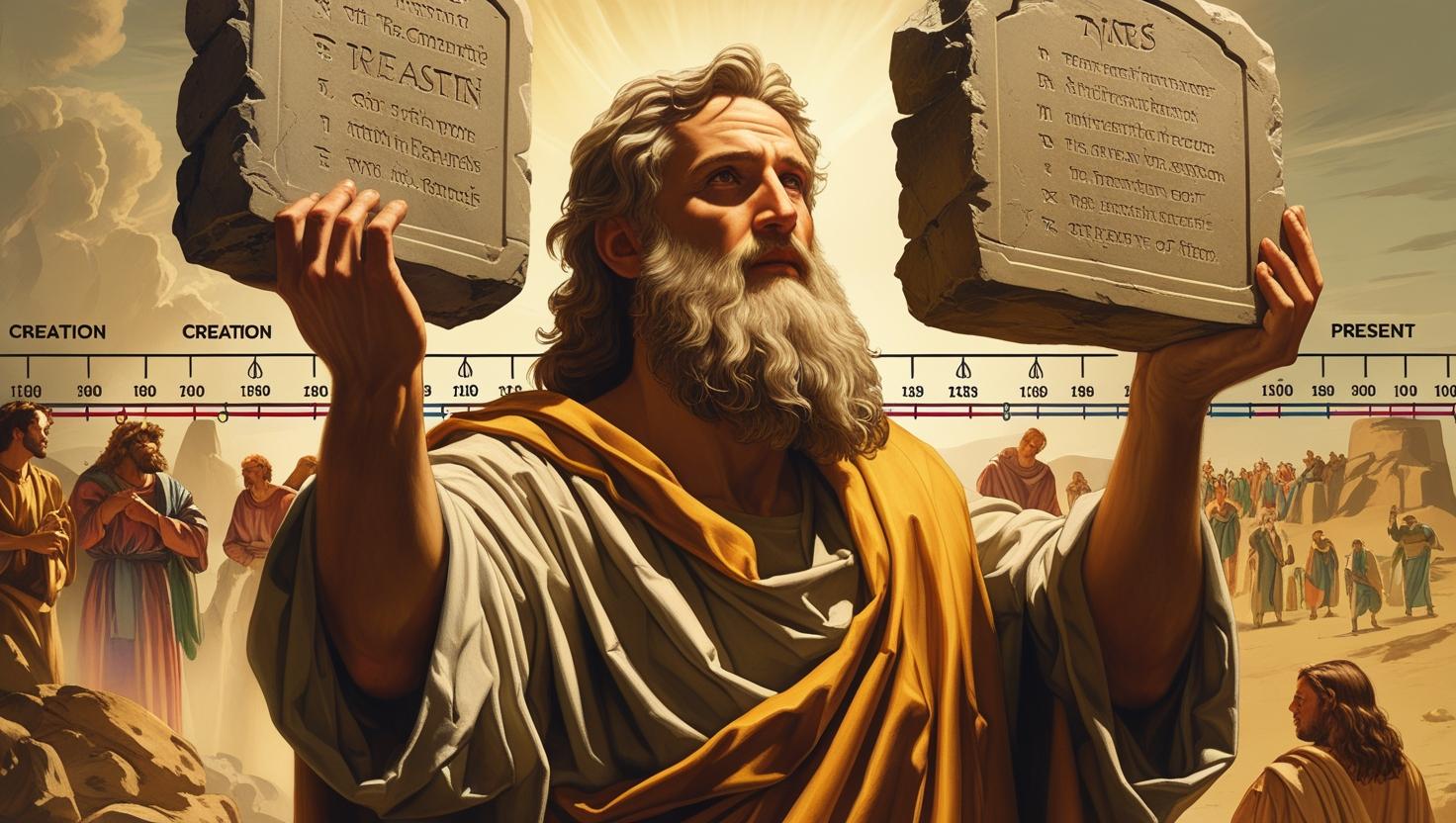News Details Home / News Details

Were the Ten Commandments Given Only at Sinai? A Response to a Common Objection.
One of the more persistent objections we hear in discussions about the Ten Commandments is the claim that they did not exist before Moses received them on Mount Sinai. This argument, if left unaddressed, subtly undermines the eternal nature of God’s moral law and lays a foundation for dismissing the commandments altogether. As Bible instructors, we are called not only to inform minds but to anchor hearts in truth. Let's take a closer look at this objection and why it cannot stand in the light of Scripture.
“The Law Didn’t Exist Before Moses” — Really?
At first glance, the claim seems almost too unbelievable to be seriously entertained. Are we to suppose that for centuries — from Adam to Abraham — humanity lived without any moral compass from God? That godly men like Enoch, Noah, and Abraham lived without any awareness of sin, righteousness, or moral obligation?
Would we say they could steal, lie, murder, or worship idols without being accountable, simply because a written code hadn’t yet been issued? If so, on what basis did God judge the world in Noah’s day? What sin did Cain commit when he murdered Abel? What made Sodom and Gomorrah “exceedingly wicked” if there was no standard by which their behavior could be condemned?
The idea that God’s moral law only came into existence at Sinai simply does not hold up under biblical scrutiny.
The Law Before Sinai — Evidences in Scripture
Let’s follow the biblical thread.
- Cain was warned that “sin lies at the door” (Genesis 4:7). But what was sin if no law had yet been given? Scripture defines sin as “the transgression of the law” (1 John 3:4).
- Joseph refused the advances of Potiphar’s wife by saying, “How then can I do this great wickedness, and sin against God?” (Genesis 39:9). Which law told him adultery was a sin?
- Abraham was commended by God “because he obeyed my voice, and kept my charge, my commandments, my statutes, and my laws” (Genesis 26:5). Clearly, a knowledge of God’s moral expectations preceded Sinai.
Paul also affirms that “where no law is, there is no transgression” (Romans 4:15). Yet he describes sin as present and active in the world long before Moses. “Death reigned from Adam to Moses” (Romans 5:14), meaning sin existed — and where there is sin, there must be law. For Paul also wrote, “by the law is the knowledge of sin” (Romans 3:20).
The Ten Commandments: Eternal Principles, Not Temporary Rules
The moral law of God — summarized in the Ten Commandments — was not invented at Sinai; it was codified there. The law existed from the beginning because it reflects the very character of God Himself.
Much like the common law tradition in human history — where principles of justice were upheld long before they were formally written — God’s law was present in the hearts and consciences of His people long before it was carved in stone. Paul confirms this idea in Romans 2:14-15:
“For when Gentiles, who do not have the law, by nature do what the law requires... they show that the work of the law is written on their hearts.”
This is the very reason why ancient people were “without excuse” when they rebelled against God (Romans 1:20). The light of conscience, even when dimmed, still bore witness to the eternal moral principles they were violating.
The Purpose of Sinai: Clarity Amidst Darkness
Why then did God write the Ten Commandments at Sinai? Because by the time of Moses, sin had so clouded the conscience of humanity that a clear, public declaration of God’s moral will was desperately needed. Israel had just come out of generations of Egyptian idolatry. They needed more than tradition or whispered truths — they needed God’s voice from the mountain and His finger in the stone.
That moment was not the birth of morality, but the reaffirmation of it.
“The Lord Made Not This Covenant With Our Fathers…” — What Did Moses Mean?
Deuteronomy 5:3 is often cited as proof that the Ten Commandments did not apply before Sinai:
“The Lord made not this covenant with our fathers, but with us, even us, who are all of us here alive this day.”
But this need not trouble us. Moses was not saying that the commandments themselves were brand new. He was speaking of the formal covenant relationship God established with Israel as a nation. Before Sinai, God dealt with patriarchs and families. Now He was forging a covenant with a people — a holy nation (Exodus 19:6).
Just as a wedding ceremony doesn’t create love but formalizes it, the covenant at Sinai didn’t create morality — it ratified it in the context of national identity.
Why This Matters for Today
If the Ten Commandments predated Sinai — and they did — then they are not limited to any particular era or people. They express God's eternal will for humanity. And if that is true, then the argument that the law was abolished at the cross crumbles as well.
Christ did not come to destroy the law but to fulfill it (Matthew 5:17). He affirmed its principles, deepened their application, and lived them out perfectly. And today, by His Spirit, He writes them again — not on tablets of stone, but on the hearts of His people.
Encouragement for Instructors
To those who teach the Word: know that you are standing on the side of a truth as old as Eden, as enduring as God's throne. When you uphold the Ten Commandments, you are not advocating for legalism or Old Testament relics — you are championing the character of God, the foundation of His government, and the true standard of righteousness.
Let the eternal light of God’s moral law shine brightly in your teaching. In a world of moral confusion, it remains the sure compass. Let us instruct not only with logic but with love — not only defending the law, but lifting Christ, who empowers us to obey it.
“Sin is the transgression of the law.” (1 John 3:4)
“Thy law is the truth.” (Psalm 119:142)
“Great peace have they which love thy law.” (Psalm 119:165)
The commandments are not a burden — they are a blessing. They were not created at Sinai — they were written in eternity.
Let us teach, defend, and delight in them.
Leave A Comment
Sing in to post your comment or singup if you don’t have any account.

0 Comments